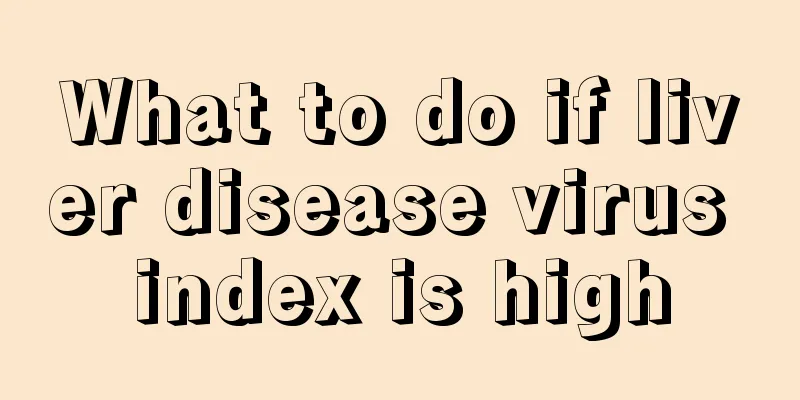The smell of burping and fermentation is also diarrhea

|
If we eat very quickly and only eat dry food without drinking water, we will find ourselves prone to burping after eating. At this time, we often ask someone next to us to pat our back or drink a large glass of water directly to relieve the pain. Simple burps will disappear quickly, but if the burps have a fermented smell and watery stools, what is causing this? It is generally believed that the symptoms of gastroenteritis are caused by improper diet and indigestion. Comprehensive conditioning can improve the symptoms. Gastroenteritis is usually caused by microbial infection, but can also be caused by chemical toxins or drugs. Typical clinical manifestations are diarrhea, nausea, vomiting and abdominal pain. In healthy adults, gastroenteritis usually causes only discomfort and inconvenience without causing serious consequences, but in seriously ill, debilitated, very young, or elderly patients it can cause life-threatening dehydration and electrolyte disturbances. Causes: Infectious gastroenteritis can be caused by infection with viruses, bacteria, or parasites. Toxins and drugs can cause chemical gastroenteritis. Viral infection is the most common cause of gastroenteritis. There are many viruses that can cause gastroenteritis, the most common of which is rotavirus, followed by Norwalk virus, astrovirus and enteric adenovirus. Common routes of infection include: food (especially seafood), contaminated water sources, contact with infected people, unclean tableware, and not washing hands before eating. Clinical manifestations: The type and severity of gastroenteritis symptoms depend on the type and amount of the microorganism or toxin. The most common symptom is diarrhea. Other symptoms include: abdominal pain, nausea, vomiting, fever, loss of appetite, weight loss (which may be a sign of dehydration), heavy sweating, cold and clammy skin, muscle pain or joint stiffness, fecal incontinence, etc. Severe vomiting and diarrhea can quickly lead to dehydration, the symptoms of which include weakness, extreme thirst, oliguria or darker urine, dry skin, dry mouth, sunken eyes, and infants may cry with fewer tears. Severe vomiting or diarrhea can cause hyponatremia, hypokalemia, hypotension, etc. Patients who drink large amounts of water with little or no salt to replenish their fluids are particularly susceptible to hyponatremia. Fluid and electrolyte imbalances are potentially dangerous, particularly in seriously ill, debilitated, very young, or elderly patients; severe cases may result in shock and renal failure. examine: Gastroenteritis is usually diagnosed based on symptoms, but the cause is often not obvious. If symptoms are severe or persistent, a stool culture may be done to detect bacteria, viruses, or parasites. Patients suspected of severe dehydration should be monitored carefully for electrolytes and renal function. |
<<: My head suddenly hurts like a needle prick
>>: What to do if the tap water is turbid and yellow
Recommend
Is the cold contagious? How to treat it
Generally speaking, colds are contagious, so frie...
Skin cancer patients are advised to choose treatment methods as early as possible
Now, the incidence of skin cancer in our country ...
Conditions for rabies transmission
Rabies is a serious disease that is almost always...
How long does a concussion coma last?
After a blow to the head, there will be a brief b...
Social reasons lead to high incidence of liver cancer in southeast coastal areas
Through epidemiological surveys and studies, it w...
How should bladder cancer be treated one year after instillation
One year after bladder cancer instillation treatm...
How to use medication after kidney cancer metastasizes to the lungs
Kidney cancer is a malignant tumor that occurs in...
Can I eat bananas if I have bile reflux
People often suffer from gastritis, but in fact t...
After interventional surgery for advanced liver cancer, metastasis to the adrenal glands
After interventional surgery for advanced liver c...
How to quickly regulate the spleen and stomach?
Many people have problems with their spleen and s...
Is lung cancer contagious? Does it affect people around you?
Lung cancer itself is not an infectious disease a...
Nasopharyngeal carcinoma relapsed two years after radiotherapy
After the first course of radical radiotherapy fo...
What to do if pus comes out of toes
Normally, when we move around, we can walk or run...
Things to note before transplanting frozen blastocysts
Before transplanting frozen blastocysts, female f...
Which hospital is good for cervical precancerous lesions
Cervical cancer belongs to the category of vagina...









